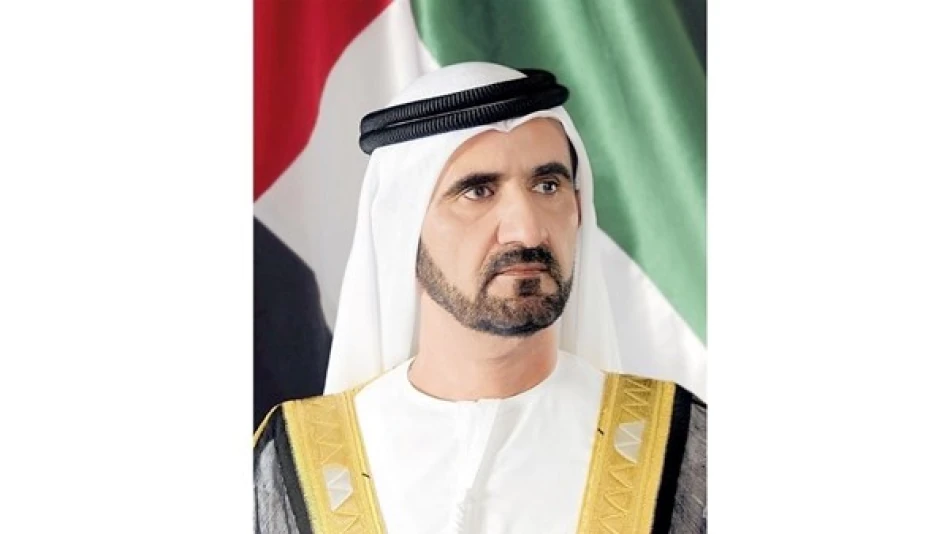
UAE's Entrepreneurial Capital: Mohammed Bin Rashid Launches National Campaign
UAE Doubles Down on Startup Ambitions With 10,000 Entrepreneur Training Push
The UAE has launched an ambitious national campaign to train and support 10,000 local entrepreneurs, signaling the country's serious intent to become the world's startup capital. With over 50 public and private organizations backing the initiative, this represents one of the most comprehensive entrepreneurship drives in the Middle East.
The Numbers Behind UAE's Startup Ecosystem
Sheikh Mohammed bin Rashid Al Maktoum, UAE Vice President and Prime Minister, announced the "UAE: World Capital of Entrepreneurship" campaign via social media. The timing isn't coincidental. Small and medium enterprises already contribute over 63% of the UAE's non-oil GDP, and the country leads 56 major global economies in supporting SMEs.
The UAE currently operates 50 business incubators nationwide, creating a foundation that many emerging markets lack. This infrastructure gives the new campaign a realistic chance of hitting its targets, rather than being another government announcement without substance.
Why This Matters for Global Markets
The UAE's push comes as regional competition for startup talent intensifies. Saudi Arabia has been throwing massive resources at its Vision 2030 program, while Qatar and Bahrain are also building their own entrepreneurship hubs. The UAE's advantage lies in its established business environment and regulatory framework that already attracts international companies.
For investors, this campaign suggests the UAE is preparing for a post-oil economy more aggressively than its neighbors. The focus on local talent development, rather than just importing expertise, indicates long-term strategic thinking.
Learning From Singapore's Playbook
The UAE's approach mirrors Singapore's successful transformation from a trading port to a global business hub. Both countries leveraged their geographic advantages, built strong institutions, and invested heavily in human capital. Singapore's startup ecosystem now produces unicorns regularly and attracts billions in venture capital.
The key difference is timing. The UAE is launching this initiative during a global economic slowdown when venture funding has contracted. This could actually work in their favor, as talent and resources are more available and less expensive than during boom periods.
The Reality Check
Training 10,000 entrepreneurs sounds impressive, but success will depend on execution quality, not just quantity. Many government-led entrepreneurship programs struggle with bureaucracy and lack of real market understanding.
The UAE's track record suggests they understand this challenge. Dubai's free zones and regulatory sandboxes have already created successful business environments. The involvement of 50+ organizations indicates they're taking a coordinated approach rather than leaving everything to government agencies.
The real test will be whether these 10,000 trained entrepreneurs can access capital, navigate regulations, and build sustainable businesses. The UAE's existing infrastructure gives them a head start, but global economic headwinds will test even the best-designed programs.
Most Viewed News

 Layla Al Mansoori
Layla Al Mansoori






